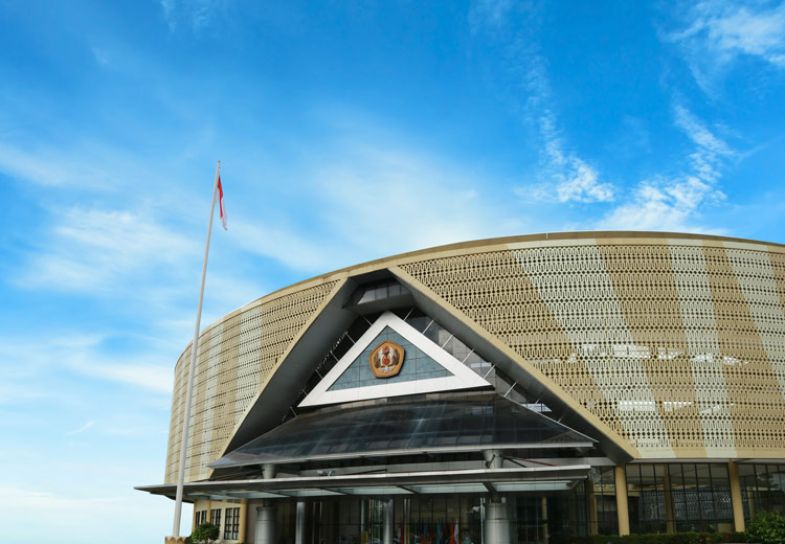
Universitas Padjadjaran promotes sustainable development by integrating tenets of sustainability into its courses and campus operations
Universitas Padjadjaran in Indonesia is actively supporting global efforts to mitigate climate collapse and promote sustainable development. Founded in 1957, the university’s campus facilities and research centres play a crucial role in supporting its impact in the field of sustainability. The university’s commitment to the United Nations’ Sustainable Development Goals (SDGs) is included in its core academic values, says Rina Indiastuti, the university’s rector.
“Universitas Padjadjaran integrates sustainability principles and the SDGs into its academic curriculum across various disciplines,” says Indiastuti. The university offers a wide range of undergraduate and postgraduate programmes in subjects such as sustainable development, environmental studies, renewable energy and social justice.
The university has implemented smart building technology to create an environmentally friendly campus. In 2016, the university established the Sustainable Development Goals Center, which was the first of its kind in Indonesia, to design courses related to sustainability and carry out public awareness initiatives and community service. The Center for Environment and Sustainability Science and the Center for Economics and Development Studies also conduct interdisciplinary research related to sustainable development.
The university provides specialised research facilities and laboratories for research projects on various aspects of sustainability, such as environmental science, climate change mitigation and sustainable agriculture. The university also offers collaborative spaces, such as meeting rooms, seminar halls and coworking spaces, where researchers, students and faculty members can come together to exchange ideas, share knowledge and work on interdisciplinary projects related to sustainability. To strengthen interdisciplinary and transdisciplinary collaboration, the university delivers postgraduate and doctoral programmes using coworking spaces, collaborative hubs and hybrid rooms.
The university offers many experiential opportunities related to the SDGs, such as internships, service-learning projects and volunteering opportunities. “These projects allow students to address community needs, develop social responsibility skills and apply their academic knowledge,” Indiastuti says. “By offering these diverse opportunities for students to engage in real-world problem-solving and skills development, the university prepares its graduates to become well-rounded professionals equipped to address complex challenges and make positive contributions to society.”
Universitas Padjadjaran collaborates with other universities, institutions and government agencies to enhance its impact and global reach through joint initiatives and partnerships. Such collaborations enable the university to promote academic exchange, sustainable development research, technology transfer and student and faculty mobility, says Indiastuti.
The university is committed to strengthening its sustainability efforts and contributions. To achieve this, it plans to implement green campus initiatives and sustainable infrastructure, expand community engagement programmes and invite more opportunities for collaborative research. Additionally, the university aims to establish research grants, scholarships and fellowships for students and faculty members conducting research in areas such as climate change and sustainable development.
“Investing in sustainability efforts at Universitas Padjadjaran not only benefits the institution but also empowers students to become agents of positive change in their communities and beyond,” Indiastuti concludes.
